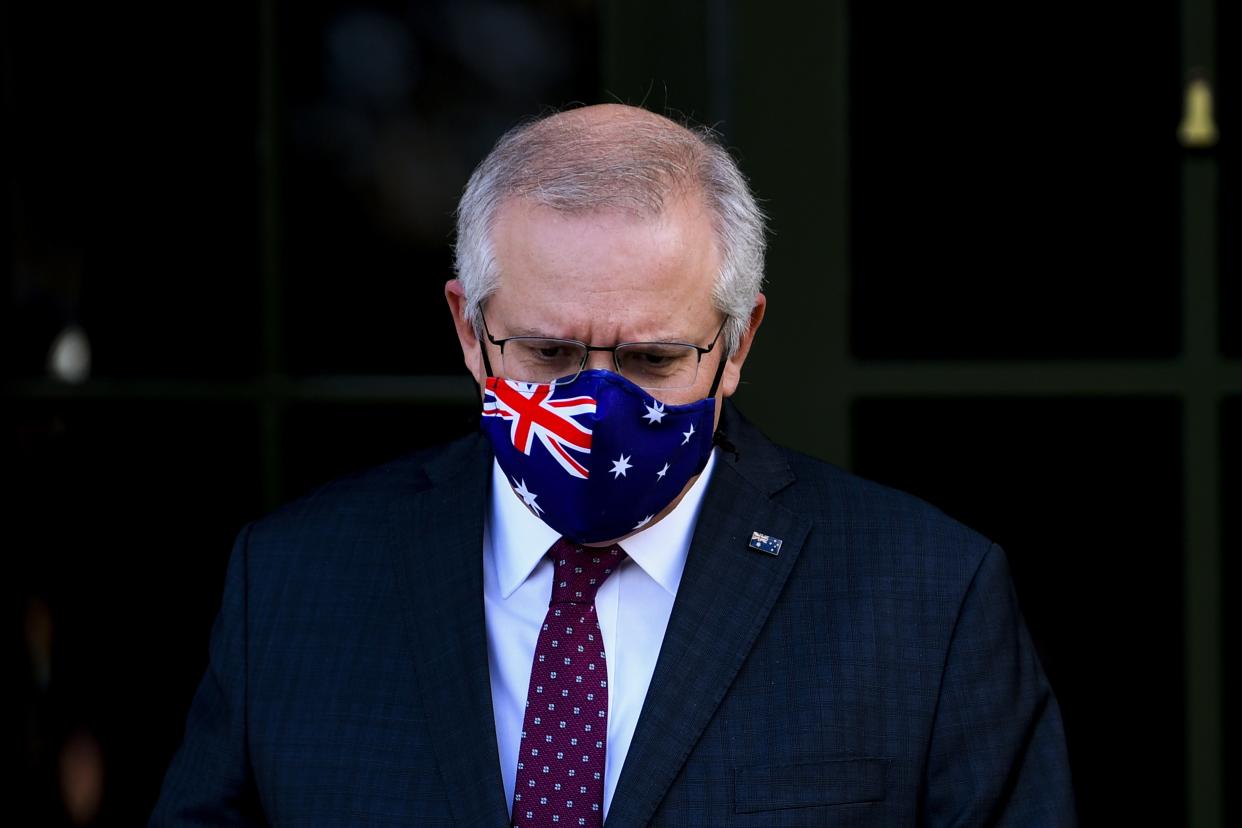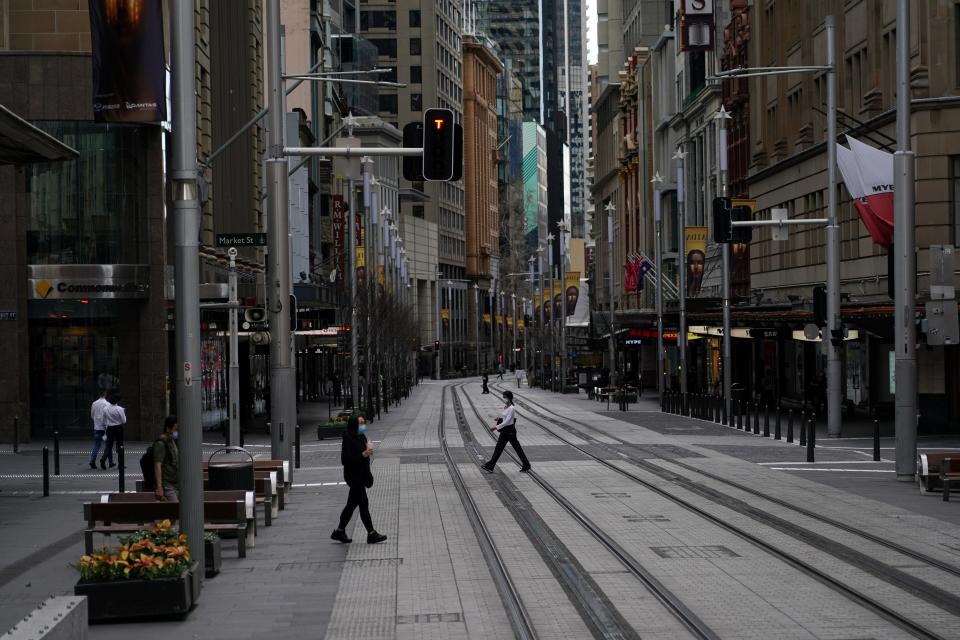Australia’s PM battles for his political survival amid fallout over the Delta outbreak

In the space of barely a week, the fortunes of Australian prime minister Scott Morrison have been transformed for the worse.
He sailed through the first year of the pandemic, basking in Australia’s escape from its worst effects. He looked untouchable as a federal election approaches, barely a year away.
But suddenly, the betting has shifted as the swirl of the pandemic dashes political reputations.
Now, Sydney’s lockdown has been extended by a month, as Covid cases continue to rise. Australia’s largest city has been under stay-at-home orders since June as it battles to bring an outbreak of the Delta variant under control. Former prime minister Malcolm Turnbull let rip to the BBC yesterday that the vaccine rollout was “the biggest failure of public administration that I can recall”.
The decline was gradual at first for Mr Morrison. There had been a grumbling discontent as Australians realised that the rollout of vaccines was slow compared to that of other countries. On the latest figures, just 16 per cent of Australia’s adult population have had two jabs, compared with more than half in the UK.
But now the muttering has turned to out-and-out anger, both on the streets and in the studios. And although Victoria and South Australia both came out of lockdowns on Wednesday, having contained smaller outbreaks, public opinion has shifted over the government’s handling of Covid.
The earlier, much-vaunted approach of keeping infections under control by closing borders and enforcing hotel quarantine for arrivals, along with rapid state lockdowns and rigorous contact-tracing, now appears to have reached its limits. The slow vaccine programme is hampering the broader pandemic fight.
On Wednesday last week, Mr Morrison was wrong-footed by a commercial radio host, Jason Hawkins (not normally considered the most challenging of foes).
The presenter confronted him live on air: “What does this spell? S, O, R, R, Y.” Mr Morrison was flummoxed. Despite repeated requests to apologise, the prime minister refused, as he did again in a press conference later that day. He was not going to say sorry. No, he wasn’t.
Except that the next day he did – sort of: “I’m sorry that we haven’t been able to achieve the marks that we had hoped for at the beginning of this year – of course I am.”

It was enough to get the word “apology” into headlines – but too late to do him much good.
“It doesn’t look good when Morrison refused to say the word but then said a lukewarm ‘sorry’,” said John Hewson, leader of the Liberals from 1990 to 1994.
Too little, too late was the verdict of Sue Cato, who advises the boards of some of Australia’s biggest businesses – as well as its most prominent politicians – on their PR.
“One of the problems this federal government has is that they take so long to apologise. They press the bruise. An apology which is too late looks like it was a forced apology, and that takes the potency out of it.”
And then public anger spilled out onto the streets, with public protests against the continuing, heavily policed lockdowns of Sydney and Melbourne.
The motives of the mishmash of protesters on the streets of Sydney appeared often to be incoherent, and devoid of any basis in science – but the rage was palpable. The protesters may well be a small minority, but patience is wearing thin with the seemingly endless pandemic.

Not only has the rollout of the vaccines been slow, but advice on the safety of the AstraZeneca vaccine for the under-60s has shifted and then shifted again. Initial concerns about the link to rare blood clots prevented many in that age bracket from getting vaccinated.
The government also came under criticism for failing to secure enough supplies of the Pfizer vaccine. Now the national regulator has updated its guidance, urging all Sydney residents aged 18 and over to get the AstraZeneca jab.
Along with the fallout over confused messaging, the state premiers are starting to bicker and point fingers at the centre. A blame game is under way.
The result of the disarray, confusion and anger is that Mr Morrison’s approval ratings have fallen to their lowest level in a year. A recent poll for The Australian showed his ruling Liberal-National Party coalition trailing an opposition Labor Party that had previously seemed lacklustre.
Mr Morrison suddenly seems like a prime minister in difficulties. At the start of the pandemic he was still recovering from the widespread scorn he attracted for taking a holiday in Hawaii as much of eastern Australia burned in the worst bushfires in living memory.
But he returned and rebuilt his reputation. The closure of the border seemed to keep the virus out. Outbreaks were defeated with severe lockdowns and vigorous contact-tracing.
Life in pre-vaccine “Year One” of the pandemic seemed normal compared with the catastrophes of Europe and North America. Mr Morrison beamed as a certain national smugness became infectious.
His detractors call him “Scotty from marketing”, a man more concerned with appearance than with substance.
He is learning that this pandemic is about hard choices and policy. It’s about getting decisions right.
Read More
Australia Covid: Anti-lockdown protesters ‘should be ashamed of themselves’, premier says

 Yahoo News
Yahoo News 
